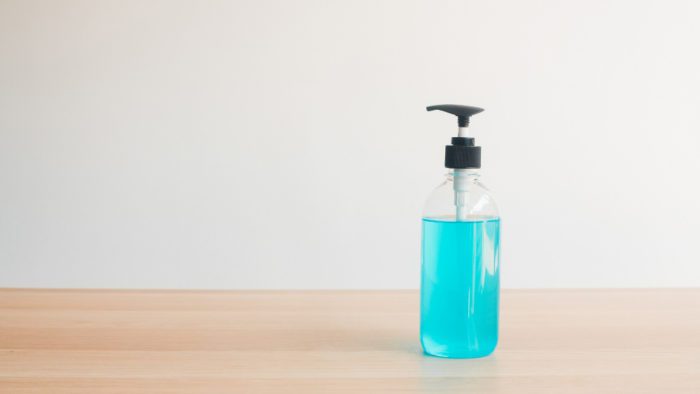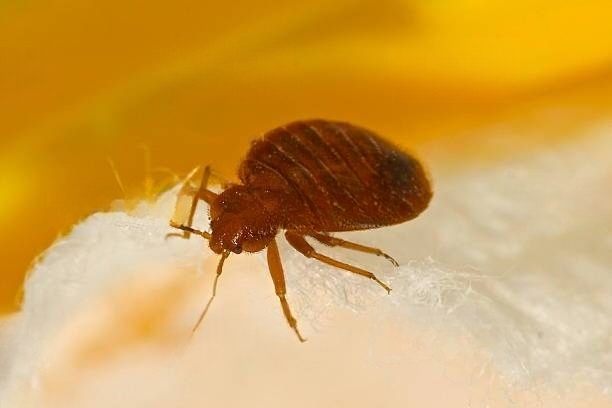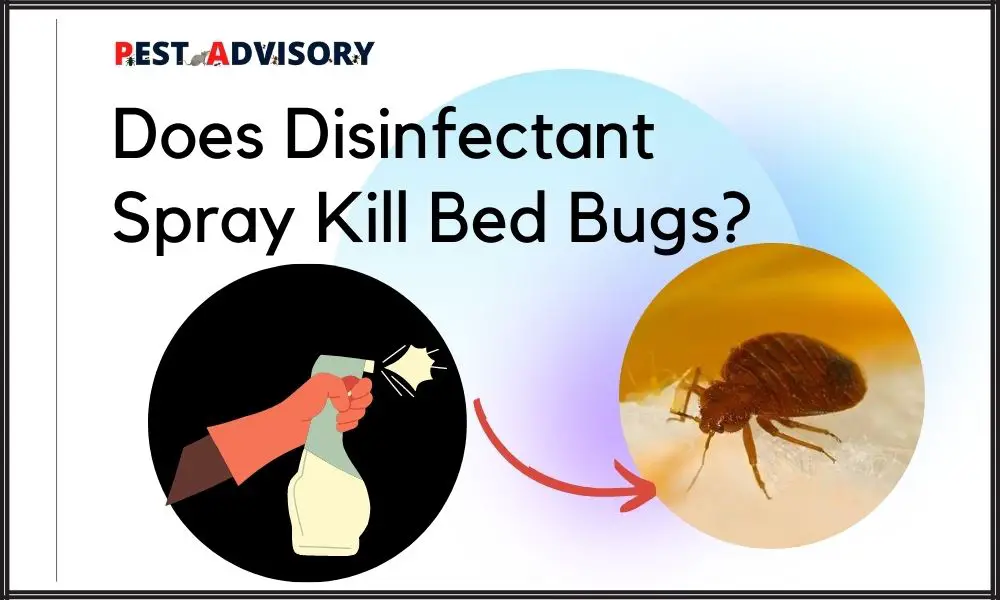Just hearing ‘bed bugs’ is enough to set panic in the mind of house owners!
Did you know that bed bugs affect one in every five houses each year? They have the potential to multiply into millions of tiny blood-sucking insects, create havoc in your home, and adversely affect your health.
In this article, we will educate you on whether or not disinfectants can help you get rid of bed bugs. And if so, what disinfectants can you use and how to use them? And lastly, some pros and cons of using disinfectants, and some necessary precautions!
Does Disinfectant Eliminate Bed Bugs?
The primary purpose of disinfectants and cleaning agents is to get rid of tiny germs, bacteria, and disease-causing agents that may be residing in your house. But does disinfectant also kill bed bugs?
Well, in short, the answer is YES! But here are some things you need to know before using disinfectants for this purpose. Disinfectants contain many poisonous ingredients that are very toxic, and if consumed by bed bugs will surely kill them.
Since bed bugs are good at both, sensing danger and hiding, they can smell the disinfectant and hide inside till their path is clear of danger. So, disinfectant has to be directly sprayed on them, or in their hiding places.
Disinfectants can even sterilize bed bug eggs, on contact with it or even its noxious fumes.
Effectiveness of Disinfectants Against Bed Bugs
On direct contact, disinfectants, and cleaning agents have high effectiveness due to the presence of many toxic chemicals in them. But using disinfectants for pest-control purposes can be tricky.
This is because the toxic chemicals present are not only harmful to pests and their eggs, but their fumes can also be harmful to humans in many ways. Besides, disinfectants might not affect bed bugs or their eggs if not sprayed on them directly.
Popular Disinfectants You Can Use
There are two popular disinfectants that we are going to discuss in this article- Clorox Wipes (bleach) and Lysol (disinfectant).
Both these agents can be used to eliminate bed bugs around your home. Now, let us find out all about using them.
Can you kill bed bugs with Lysol disinfectant spray?

Lysol is an aerosol spray that kills 99.9% of bacteria, viruses, or fungi. Lysol is mainly a cleaning agent, but does it kill bed bugs? And if so, then how effective is it?
Lysol will only kill bed bugs if you spray on them directly, which is a very tough task to accomplish as these little creatures are excellent hiders, so spotting them live is often unlikely.
In short, spraying Lysol can be a tedious and ineffective method to eliminate bed bugs. Lysol spray can solve your problem only to a certain extent but it cannot eliminate bed bugs from your home.
Do Clorox Wipes work on bed bugs?
Clorox wipe is a bleaching agent containing sodium hypochlorite. Technically, YES, you can kill bed bugs using bleach, but it does not come without risks and challenges.
Bleach has a pH of 11, and therefore, has the power to break down proteins on contact with them. So if bed bugs or their eggs come in contact with it, it will instantly dissolve the protein on the shell and kill them.
Clorox wipes are also known for their strong odor. This strong odor can be highly suffocating for bed bugs and will force them out of their hiding places if applied there. This can be easily done by using Clorox wipes on cracks and crevices of the wall.
If you have clothes infested with bed bugs, bleaching in addition to heat treatment can easily get rid of them. But when it comes to your home, you probably do not want to spray bleach in and around your house as it does more harm than good.
Bleach contains many chemicals, making it a good pesticide. But the same chemicals might destroy many of your belongings if sprayed on them like furniture, carpet, mattress, etc.
So, we will not suggest that you use bleach to spray around your house.
Effective Ways of Using Disinfectants to Kill Bed Bugs
- Firstly, identify all the places in your house where these little creatures have made their hiding place or laid their eggs. This could be your mattresses, couch, cracks in walls or furniture, or pillow.
- Once you’ve found the hiding places, the second step is to clean and dry them! Wash all your beddings in warm water and dry them out, preferably under the sun. The heat of the sun will help kill bed bugs.
- Now, vacuum around the house, especially in the infested areas, and make sure to throw the vacuum bag outside to prevent them from returning.
- The fourth step is to use disinfectants. Search for all the nooks and crannies and spray disinfectant in the places likely to be infested. Spray carefully inside cracks and on furniture, curtains, etc. If you find live bed bugs or their eggs, spraying disinfectant on them directly will kill them.
- The final step is to repeat the process! Bed bugs are stubborn insects and it is not as easy to eliminate them. So repeat the same process frequently, at least once a week till your bed bug problem has vanished and is far out of sight.

What else can be used to kill bed bugs?
There are many other effective ways you can use to kill bed bugs like freezing, steaming, tea tree oil, etc.
- Freezing your belongings at a temperature less than 40F for 4-5 days is a good way to eliminate these pests from your belongings. You can use your home freezer for this purpose and use an infrared thermometer to check the temperature.
- Bed bugs are not very tolerant of heat. Steaming your house is an effective method as steam particles are very small and they can get to every corner of your house eliminating the bed bugs, once and for all.
- Tea tree oil is a common remedy for bug infestations. Tea tree oil masks the scent of carbon dioxide and repels bed bugs from us. Hence, it is a perfect remedy to prevent bites.
Pros and Cons of Using disinfectants to kill bed bugs
The biggest advantage of using disinfectant is that it is cheap! It is also more easily available than chemical pesticides. In addition, disinfectant protects your home from unwanted bacteria and germs so it is always a plus point!
But, using disinfectants like Lysol is not as effective in pest control as other methods. Besides, disinfectant dries up very quickly, so you’ll have to spray in multiple intervals about 3-4 times a day which becomes a tedious task.
Precautions
- While applying Lysol or Clorox wipes, always cover your hand with gloves to avoid contact with any chemical substance that might be present in them.
- Also wear a mask while spraying to avoid inhaling any toxic fumes.
- Remember that disinfectants like Lysol have alcohol content in them which makes them highly flammable. DO NOT light any fire or cigarette near it!
- Always read the instruction label carefully before using any product as some solutions can be damaging if sprayed on furniture or walls.
- Keep the spray or bleach out of reach of children and label them properly because they are highly toxic if ingested. If the spray or bleach enters your mouth while spraying, rush to the doctor immediately!
Final Words
In conclusion, disinfectants like Lysol are only effective against bed bugs if directly sprayed on them or if a high level of noxious fumes reaches them. This can be difficult because bed bugs are excellent hiders.
In case of an outbreak, do not hesitate to call pest control. If you want to go chemical-free, then we hope this article has helped you to not let the bed bugs bite!
